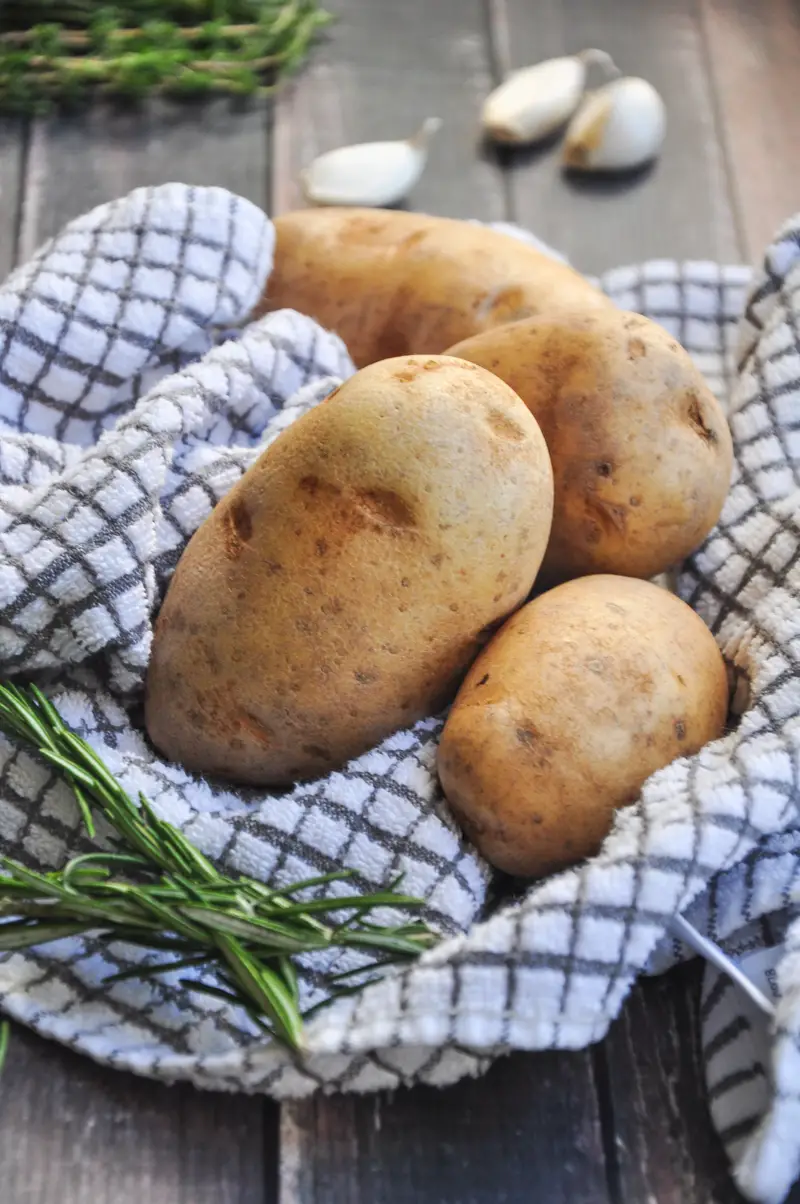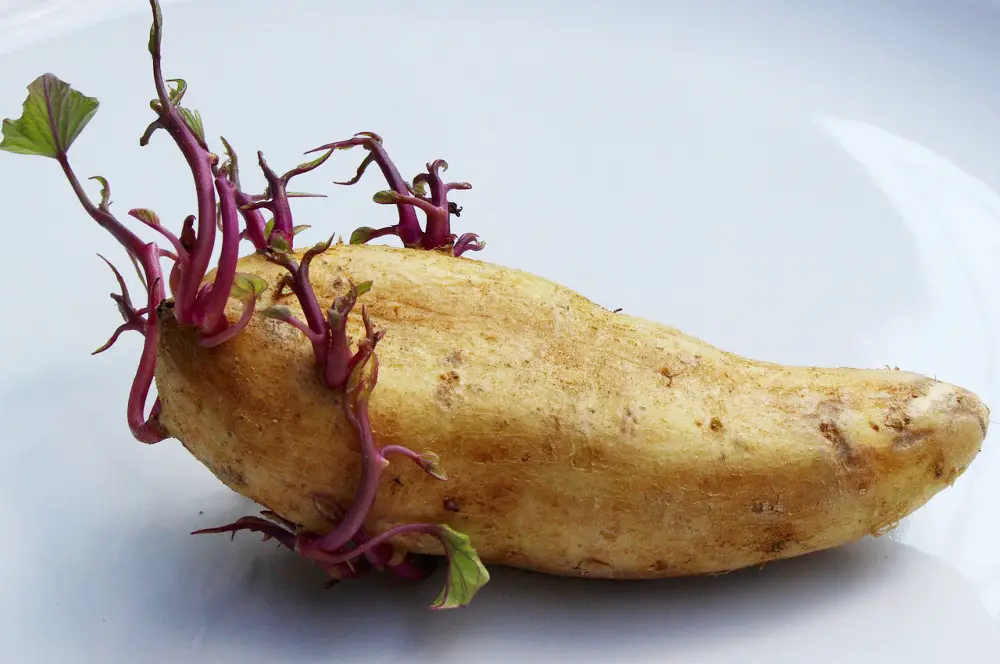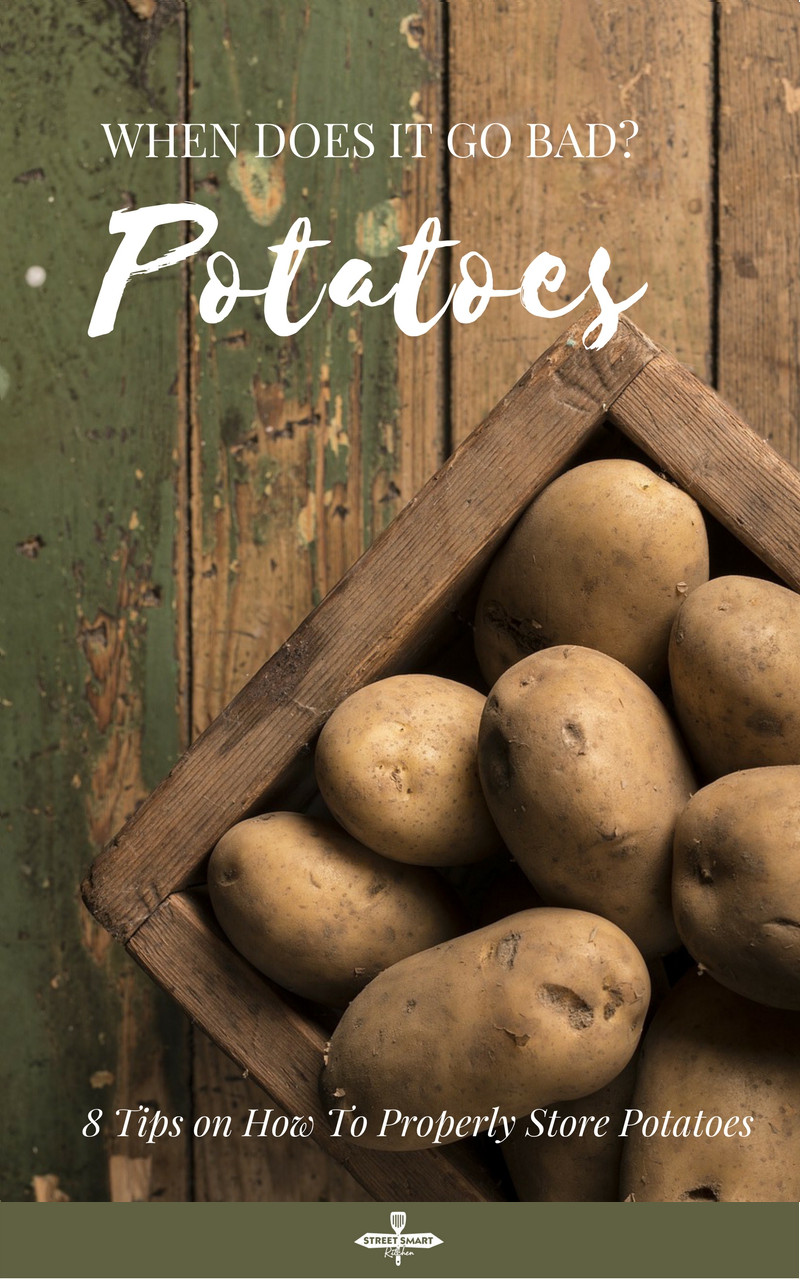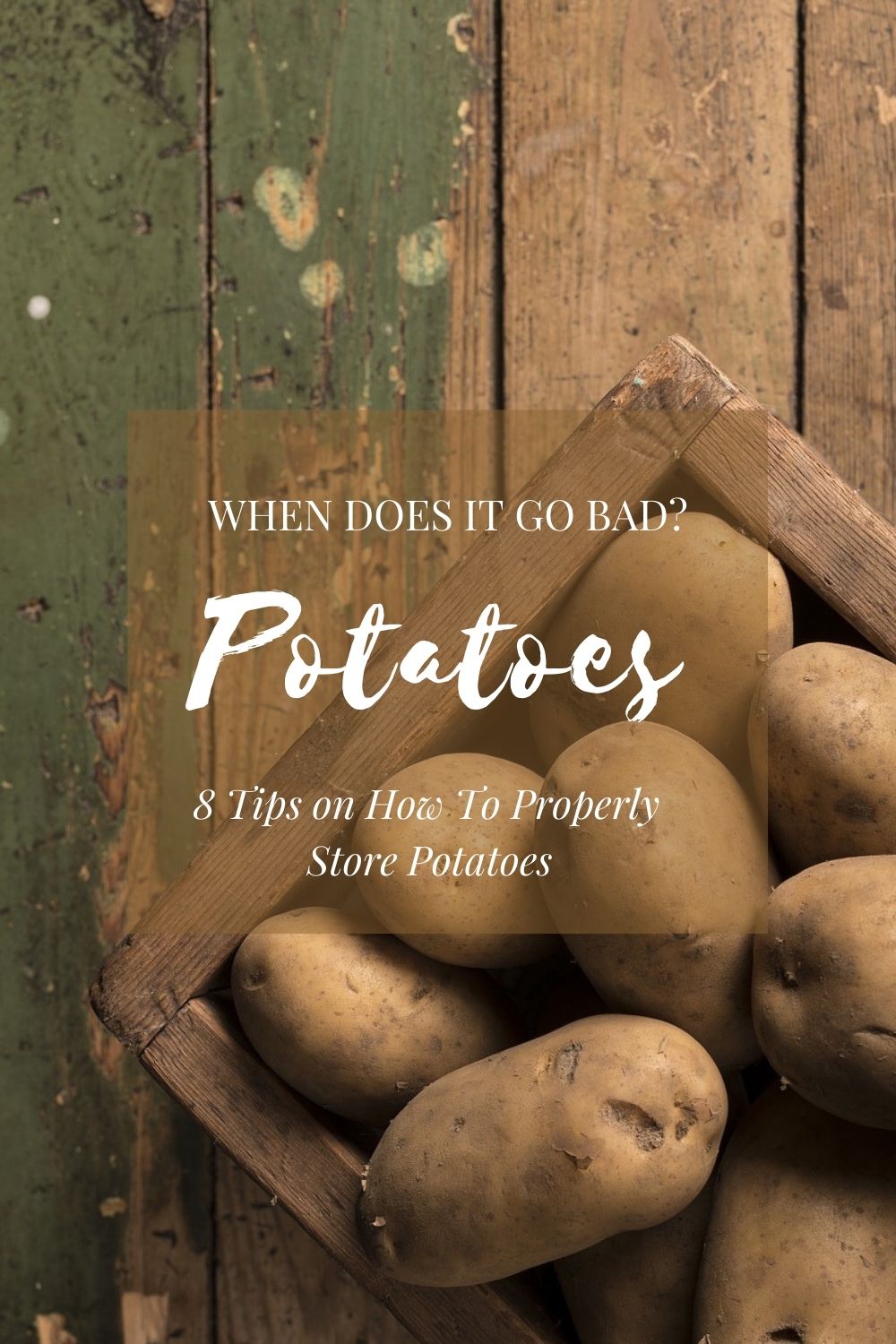When Do Potatoes Go Bad?
When do potatoes go bad? Is it bad when it’s soft and sprouting? Find out the signs of bad potatoes and tips on how to properly store potatoes.

[thrive_leads id=’13056′]
Potatoes are a popular must-have in the household. You’ll never run out of things to try with potatoes, mashed, boiled, fried and baked, by themselves or as a part of a dish. Low calorie, high fiber and rich in vitamin B6, potatoes can even help against some cardiovascular diseases and cancer. Because of these awesome attributes, it’s normal to stock up on potatoes.
When do potatoes go bad? After about one to two weeks, potatoes would start sprouting or going soft. Like any other tuberous crop out there, when not stored properly and over time potatoes will go bad.
Here are tips on prolonging the shelf life of spuds, signs of potatoes going bad, and the effects of consuming bad potatoes.
The Signs of Bad Potatoes
Got some potatoes in the pantry and completely forgot about them? That really happens. You might be surprised to find your potatoes looking different. Are my potatoes bad now? What does a bad potato look like?
Wrinkly, Sagging and Mushy Potatoes
Potatoes age the same way human skin does. Over time it will start to wrinkle and sag. Though the wrinkling and sagging won’t affect the taste of your potato that much, it will be better to get rid of them before they also ruin other potatoes. As your potatoes age, they will also start to feel mushy. This is a clear indicator that your potatoes are not edible anymore.
Smelly Potatoes
Fresh potatoes have this distinct earthy smell. Some potatoes may look perfectly fine from the outside but are actually rotten inside, with a really bitter and moldy scent.
Green Spots
These spots develop before sprouts appear. Green spots can contain a mild toxin. This review explains that greening of the peel is associated with an increase on solanine. While you can easily remove small spots, it is best to discard potatoes with large green spots.
Moldy Potatoes
Mold can form on your potatoes if not stored right. Are moldy potatoes safe? It depends. If it just affected a small portion of your potato, you can always cut and throw that part out. If the mold has taken the majority of your potato then it’s better to get rid of that one already.
Potatoes Soft and Sprouting
Are soft potatoes safe to eat? It also depends. Your potato is still good if it’s not “too soft”: mushy to the touch, sagging and shrinking.
Are potatoes still good if they are sprouting? The answer is, yes as long as they are still fairly firm, just remove the eyes and sprouts. And always remember, never eat those discarded sprouts. Solanine content in potatoes is concentrated on these sprouts, making it unsafe for consumption.

[thrive_leads id=’13056′]
What Happens If You Eat a Bad Potato?
Of course, we expect something bad to happen if we accidentally consume some bad potatoes. Can you get sick from old and bad potatoes? Yes. Bad potatoes can be poisonous.
The potato plant contains a neurotoxin called solanine. The spud is the root crop, the plant is toxic, meaning a sprouting potato– it’s turning into a plant!– can be dangerous. Solanine is concentrated mostly on the skin or sprouts of potatoes. This natural toxin in food plants acts as a natural pesticide.
Consuming bad potatoes can cause solanine poisoning. Symptoms include headaches, vomiting, fever, stomach cramps, and difficulty in breathing. Other symptoms include diarrhea, shock, and hallucinations. An article from New York Times provides more information on potato plant poisoning.
How to Properly Store Potatoes
Here are some tips to keep your potatoes from going bad too quickly.
- Always remember, the fresher the potatoes the longer it will last. If you’re planning to store some potatoes at home then better pick the freshest out of the bunch. Get some tips here: How to Pick a Potato.
- Store them in a cool, dark and dry place in your pantry.
- Avoid exposure to sunlight. Solanine production accelerates when potatoes are exposed to sunlight, which makes them even more toxic over time.
- Store your potatoes in an open container that will allow the air to circulate well. Do not use plastic! Plastic won’t allow them to breathe and will shorten their shelf life. You can use a paper bag, mesh bag, cardboard box, or basket as a container.
- Keeping them in a refrigerator is not advisable. Although refrigerating your potatoes will give them a longer shelf life, the low temperature will cause the starch on the potatoes to turn into sugar. It gives your potatoes a sweet taste but also causes them to darken faster.
- Take note of the eyes. Yes, your potatoes can develop eyes. This might sound scary but it’s natural. Those eyes are actually little sprouts that potatoes develop even after harvesting. These eyes will develop into much bigger and longer sprouts over time. Get rid of those eyes before they can ruin your potatoes.
- Keep your potatoes away from onions. They both release gases that ripen the other one. The potato-onion storage combination is inviting disaster.
- Check on your potatoes regularly and remove those already in a bad state so it won’t ruin the good ones.
Properly stored potatoes can last for one to two weeks, refrigerated ones can last for three to four weeks while frozen potatoes can last up to 12 months.

[thrive_leads id=’13056′]
About the Author
Sharon Chen is an Integrative Nutrition Health Coach and author of the Complete Sous Vide Cookbook. She believes food not only brings healing but also connection. As the creator of StreetSmart Kitchen, she aims to make meal prep easier than ever and help you find balance, ease, joy, and simplicity in the kitchen as you improve your well-being.




I ate some sweet potato this morning, after 3 hours I started tasting Ink in my mouth. I can smell my insides and it smells like ink too😭😭. I’ve vomited 5 times but I still feel the same. What should I do about this
So I came across this article when trying to determine whether my leftover raw, mandolin-sliced potatoes were safe for eating. Sigh. Here it goes. Don’t judge me too harshly.
I like to make herbed pomme anna from time to time, recipe via Bon Appétit. I had a bunch left over that were sliced and prepped with butter and herbs, but there were in the fridge for like, uh, like 3 or 4 weeks.
I was going to throw them out, but what the heck… I dumped them into a casserole dish and fired them up in the oven. Got some of them nice and toastedly crisp since, believe me, being crunchy and undercooked was NOT going to be a problem. Yes, they were unusually soft before they were cooked. Yes, they were darkened. Also, yes, they came out pretty well and I used them as a topping on some veggie burgers I made.
Conclusion……. we all survived, and it was better than expected. I’m just happy all those potatoes didn’t get wasted. But proceed with caution, because my experience may have been unique.
I cut some red potatoes on Sunday and put them in a plastic ziploc container without w⁹ater bc I didn’t know any better. I used them in an instant pot stew two days later. Some of them were semi-translucent, and others had brown streaks kind of like what an apple looks like if left out. Am I going to get sick because of it or is that just an unsightly but harmless process? They were not green or anything.
Thanks,